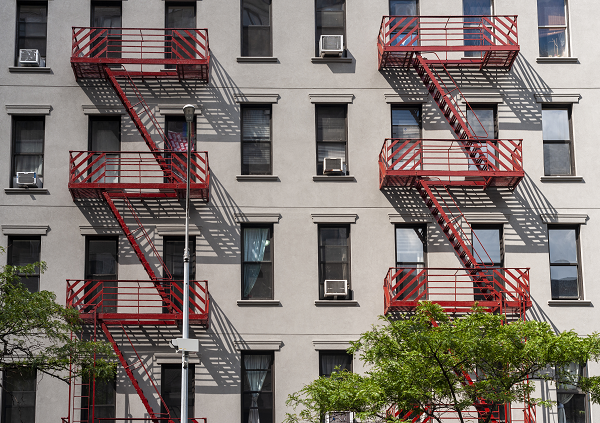Online lettings platform, LettingaProperty.com, is seeking to raise awareness among landlords and tenants of the changes due to happen on the 1 October this year.
The regulations require at least one smoke alarm on each storey of the home that has a room used as living accommodation. This is a new requirement for private landlords, as previously under 2015 regulations, private landlords only had to put alarms in rooms with solid fuel-burning appliances. Now this is all fixed combustion appliances excluding gas cookers, and the new changes will apply to social landlords too.
Landlords must also ensure there is a carbon monoxide alarm in any room that contains a fixed combustion appliance (such as log-burning stoves or gas or oil boilers but excluding gas cookers) and which is used as living accommodation.
Perhaps the biggest change for landlords is that they will be responsible for repairing or replacing any smoke and carbon monoxide alarms once they are informed by their tenants. Before the amended regulations, landlords are currently responsible for installing and testing the alarm at the start of the tenancy – but it is the tenant’s default responsibility to repair or replace it during the tenancy.
As of 1 October 2022, landlords will be responsible for this, though they will still rely on tenants to report issues.
All alarms must comply with British Standards BS 5839-6 (smoke alarms) and British Standards BS 50291 (carbon monoxide alarms), though it is up to landlords whether they equip mains or battery-powered alarms. The government have advised that for battery-powered alarms, tenants should replace the batteries themselves. If the alarm still doesn’t work, or the tenant is unable to replace the batteries, they should report it to the landlord.
Jonathan Daines, Founder and CEO, LettingaProperty.com said, “Landlords should be aware of their changing responsibilities come 1 October.
“While the majority of landlords will already have compliant smoke and carbon monoxide alarms, they may not realise the additional requirement to repair and replace these during the tenancy. These changes may seem small versus other legislation in the pipeline, but it’s more important than ever for landlords to be clued-up on all their legal obligations.”
Landlords must continue to ensure that alarms are in proper working order on the day that a tenancy commences and must keep a record of this. Any landlord who breaches the regulations may be liable for remedial notices and ultimately a fine of up to £5,000.
Jonathan concluded, “Being a landlord in the UK means keeping up to speed with a vast amount of legislation. That can feel both overwhelming and off-putting, which is why we’re here to support landlords by providing the information they need in a manageable, actionable format.”





Leave a Comment